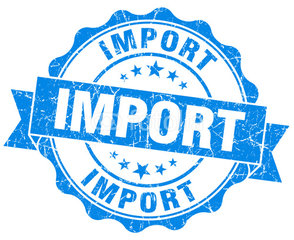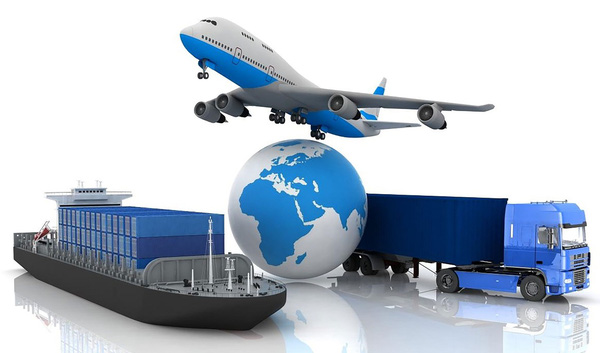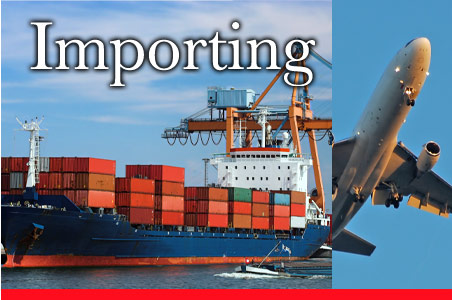 Under the GST regime, Article 269, A constitutionally mandates that the supply of goods, or of services, or both in the course of import into the territory of India shall be deemed to be supply of goods, or of services, or both in the course of inter-State trade or commerce for levy of integrated tax. So import of goods or services will be treated as deemed inter-State supplies and would be subject to Integrated tax. While IGST on import of services would be leviable under the IGST Act, the levy of the IGST on import of goods would be levied under the Customs Act, 1962 read with the Custom Tariff Act, 1975.
Under the GST regime, Article 269, A constitutionally mandates that the supply of goods, or of services, or both in the course of import into the territory of India shall be deemed to be supply of goods, or of services, or both in the course of inter-State trade or commerce for levy of integrated tax. So import of goods or services will be treated as deemed inter-State supplies and would be subject to Integrated tax. While IGST on import of services would be leviable under the IGST Act, the levy of the IGST on import of goods would be levied under the Customs Act, 1962 read with the Custom Tariff Act, 1975.
The importer of services will have to pay tax on reverse charge basis. However, in respect of import of online information and database access or retrieval services (OIDAR) by unregistered, non-taxable recipients, the supplier located outside India shall be responsible for payment of taxes. Either the supplier will have to take registration or will have to appoint a person in India for payment of taxes. Supply of goods or services or both to a Special Economic Zone developer or a unit shall be treated as inter-State supply and shall be subject to levy of integrated tax.
Import of Goods:
The import of goods has been defined in the IGST Act, 2017 as bringing goods into India from a place outside India. All imports shall be deemed as inter-State supplies and accordingly Integrated tax shall be levied in addition to the applicable Custom duties. The IGST Act, 2017 provides that the integrated tax on goods imported into India shall be levied and collected in accordance with the provisions of the Customs Tariff Act, 1975 on the value as determined under the said Act at the point when duties of customs are levied on the said goods under the Customs Act, 1962.
The integrated tax on goods shall be in addition to the applicable Basic Customs Duty (BCD) which is levied as per the Customs Tariff Act. In addition, GST compensation cess, may also be leviable on certain luxury and demerit
goods under the Goods and Services Tax (Compensation to States) Cess Act, 2017.
The Customs Tariff Act, 1975 has accordingly been amended to provide for levy of integrated tax and the compensation cess on imported goods. Accordingly, goods which are imported into India shall, in addition to the Basic Customs duty, be liable to integrated tax at such rate as is leviable under the IGST Act, 2017 on a similar article on its supply in India. Further, the value of the goods for the purpose of levying integrated tax shall be, assessable value plus Customs Duty levied under the Act, and any other duty chargeable on the said goods under any law for the time being in force as an addition to, and in the same manner as, a duty of customs.
The value of the imported article for the purpose of levying cess shall be, assessable value plus Basic Customs Duty levied under the Act, and any sum chargeable on the goods under any law for the time being, in force as an addition to, and in the same manner as, a duty of customs. The integrated tax paid shall not be added to the value for the purpose of calculating cess.
The Customs Act, 1962 provides for removal of goods from a customs station to a warehouse without payment of duty. The said Act has been amended to include ‘warehouse’ in the definition of “customs area” in order to ensure that an importer would not be required to pay the Integrated tax at the time of removal of goods from a customs station to a warehouse.
Input tax credit of integrated tax: The definition of “input tax” in relation to a registered person also includes the integrated tax charged on import of goods. Thus, input tax credit of the integrated tax paid at the time of import shall be available to the importer and the same can be utilized by him as Input Tax credit for payment of taxes on his outward supplies. The integrated tax shall, in essence, be a pass-through to that extent. The Basic Customs Duty (BCD), shall however, not be available as input tax credit. HSN (Harmonised System of Nomenclature) code would be used for the purpose of classification of goods under the GST regime.
As per section 11 of the IGST Act, 2017 the place of supply of goods, imported into India shall be the location of the importer. Thus, if an importer, say is located in Rajasthan, the state tax component of the integrated tax shall accrue to the State of Rajasthan.
Import of services has specifically been defined under IGST Act, 2017 and refers to supply of any service where the supplier is located outside India, the recipient is located in India, and the place of supply of service is in India.
As per the provisions contained in Section 7(1)(b) of the CGST Act, 2017, import of services under consideration of whether or not in the course or furtherance of business, shall be considered as a supply. Thus, in general, imports of services without consideration shall not be considered as supply. However, business test is not required to be fulfilled for import of service to be considered as supply.
Furthermore, in view of the provisions contained in Schedule I of the CGST Act, 2017, the import of services by a taxable person from a related person or from a distinct person as defined in Section 25 of the CGST Act, 2017, in the course or furtherance of business shall be treated as supply even if it is made without any consideration.
In view of the provisions contained in Section 14 of the IGST Act, 2017, import of free services from Google and Facebook by all of us, without any consideration, are not considered as supply. Import (Downloading) of a song for consideration for personal use would be a service, even though the same are not in the course or furtherance of business. Import of some services by an Indian branch from their parent company, in the course or furtherance of business, even if without consideration, will be a supply.
Thus, import of services can be considered as supply based on whether there is consideration or not and whether the service is supplied in the course or furtherance of business.
As per the provisions contained in Section 21 of the IGST Act, 2017, all imports of services made on or after the appointed day will be liable to integrated tax regardless of whether the transactions for such import of services had been initiated before the appointed day. However, if the tax on such import of services had been paid in full under the existing law, no tax shall be payable on such import under the IGST Act. In case the tax on such import of services had been paid in part under the existing law, the balance amount of tax shall be payable on such import under the IGST Act.
Section 13 of the IGST Act, 2017 provides for determination of place of supply in cases wherein the location of the supplier of services or the recipient of services is outside India. Thus, this section provides the place of supply in relation to international or cross-border supply of services. Place of supply of a service shall determine as to whether a service can be termed as import or export of service.


